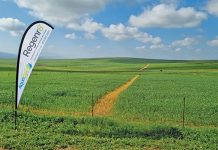Good summer rains have left SA agriculture optimistic overall, even though the economy finds itself in uncertain waters. The Agricultural Business Confidence Index, compiled by the Agricultural Business Chamber (ABC)/Independent Development Commission (IDC), for the first quarter of 2008 showed a 9,36% increase in business confidence compared to the same period in 2007. The preceding two quarters also showed a growth in confidence levels. Dr John Purchase, CEO of the ABC, perceives the agribusiness sector to be bullish and optimistic. “High commodity prices, good yields and increasing local and international demand for SA agricultural and food products, explain the optimism of agribusinesses and outweigh the fact that SA is currently plagued by political uncertainty, an electricity shortage and slower economic growth,” said Dr Purchase.
Agribusinesses are benefiting greatly from the increase in commodity prices, considering their impact on turnover and net operating income. Corné Kruger, Senwes financial analyst, explained that the potential to finance a heavier balance sheet, thanks to the high commodity prices, can increase a business’s market share. F or the first time in years, capital investment was perceived to be higher. According to data from Quantec, IDC, there was a downward trend in fixed investment in agro-industries over the past 20 years. With capital stock at its lowest levels since 1980, Jorge Maia, research and information head at the IDC, expected that capital stock, and therefore investment, was set to increase to enable growth in the sector. This emphasised the fact that the sector was reliant on the demand side and that it’s now important to overcome supply-side constraints through investment. However, the increase in investment could be due to investment in operational capital. This includes the financing of more expensive inputs, and the investment in operational aspects without the potential to increase profit, such as in alternative electricity generation. ub-indices for employment and volume exports both decreased. The IDC had observed a negative employment trend in agro-industries since 1980. “Employment decreases, mainly due to peculiarities such as the minimum wage, could persist into the immediate future,” said Maia. Strong urbanisation contributed substantially to this trend and it was perceived that fewer people wanted to work in agriculture.
Lindie Botha, ABC agricultural economist and compiler of the index, said the stronger rand over the past production year was not the only reason for lower volumes being exported. This was also due to selling locally becoming a more lucrative option than exporting. “We got behind in our local supply, especially considering low stock levels,” said Botha. Charles Hughes, CEO of Tru-Cape Fruit Marketing, also expected the stronger exchange rate over the past year and higher shipping costs to negatively impact on income. owever, Hughes anticipated that larger local production volumes would offset any loss of income. inancing costs increased considerably, whereas debtor provision for bad debt had only showed a slight increase. Interest rate hikes definitely impacted on the business confidence of agribusinesses. owever, according to Botha, the situation is under control because the repayment ability of farmers wasn’t perceived to be too low, due to good yields and the relatively high prices expected for agricultural products. – Staff reporter








